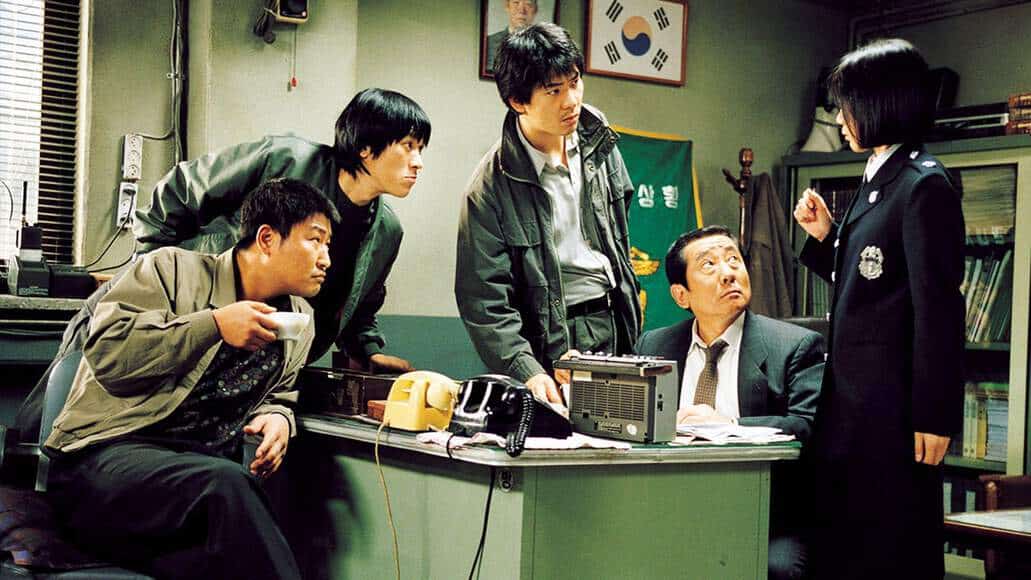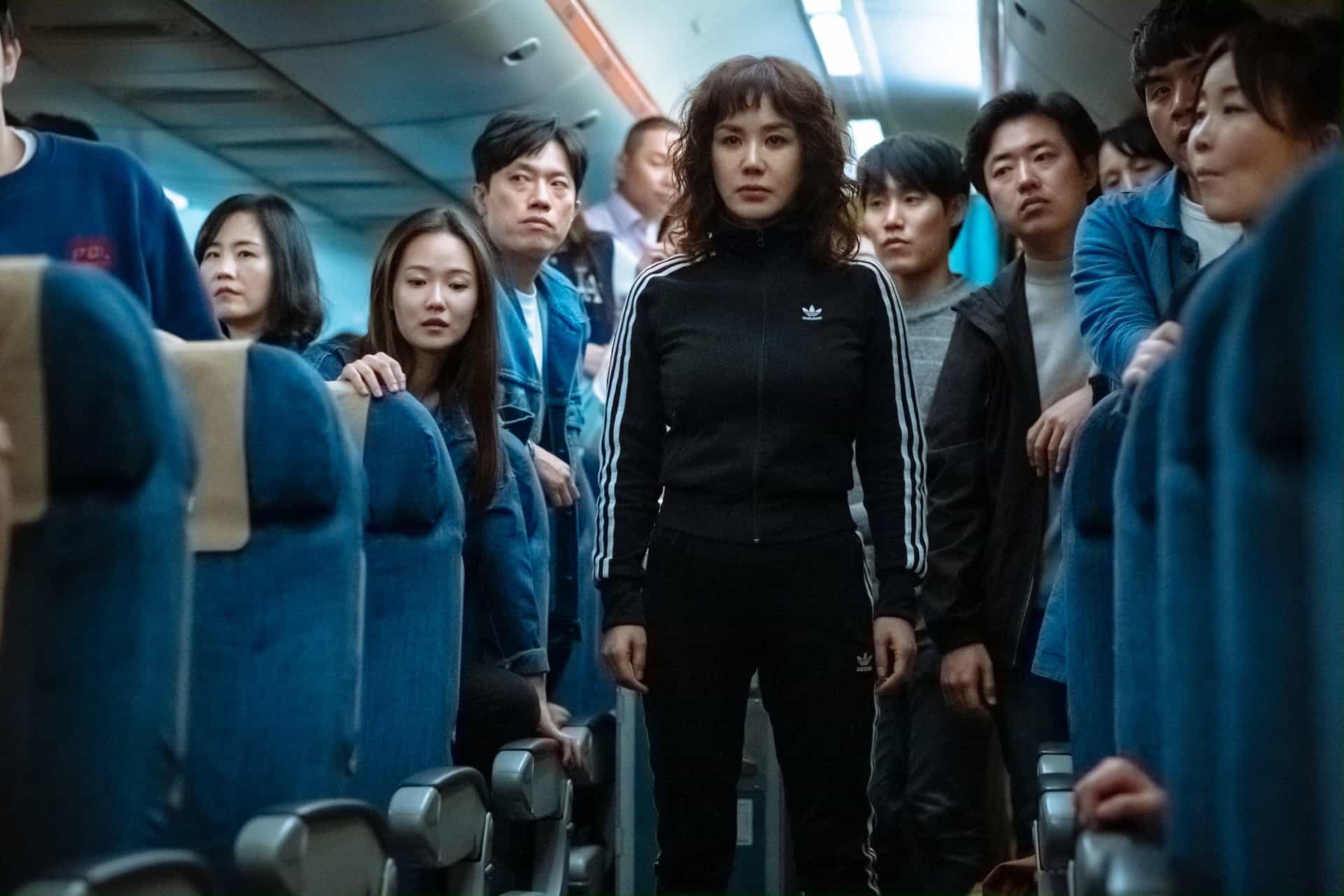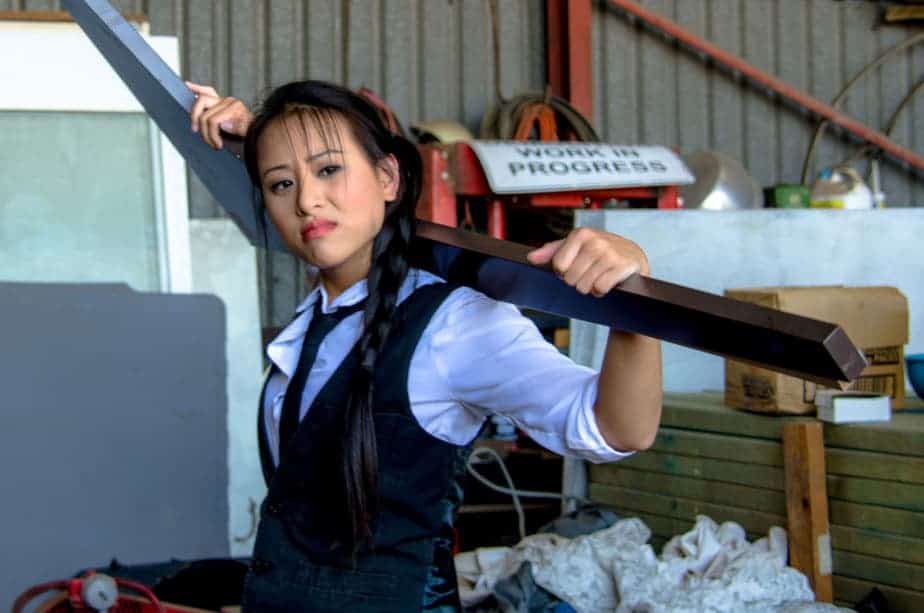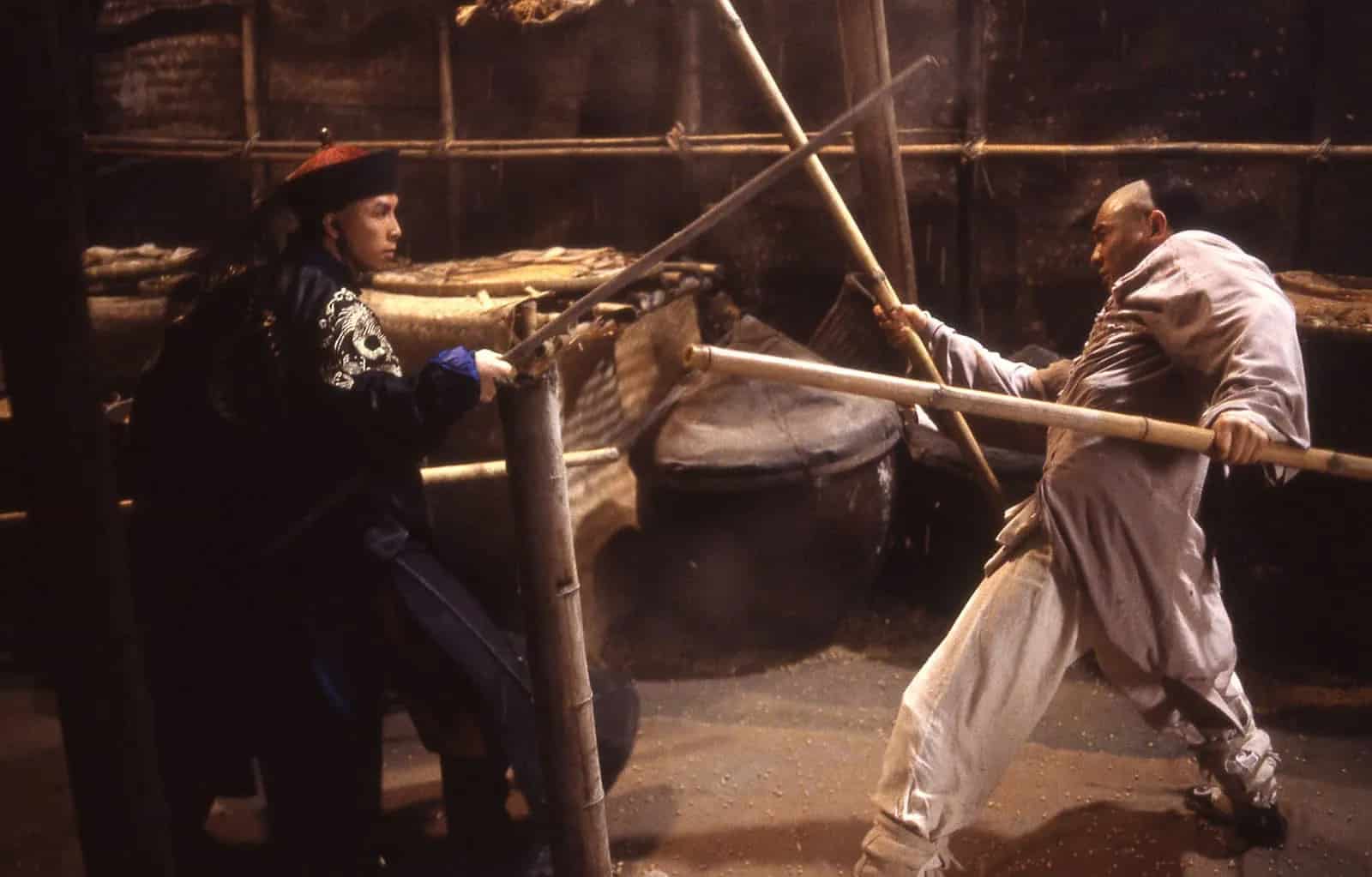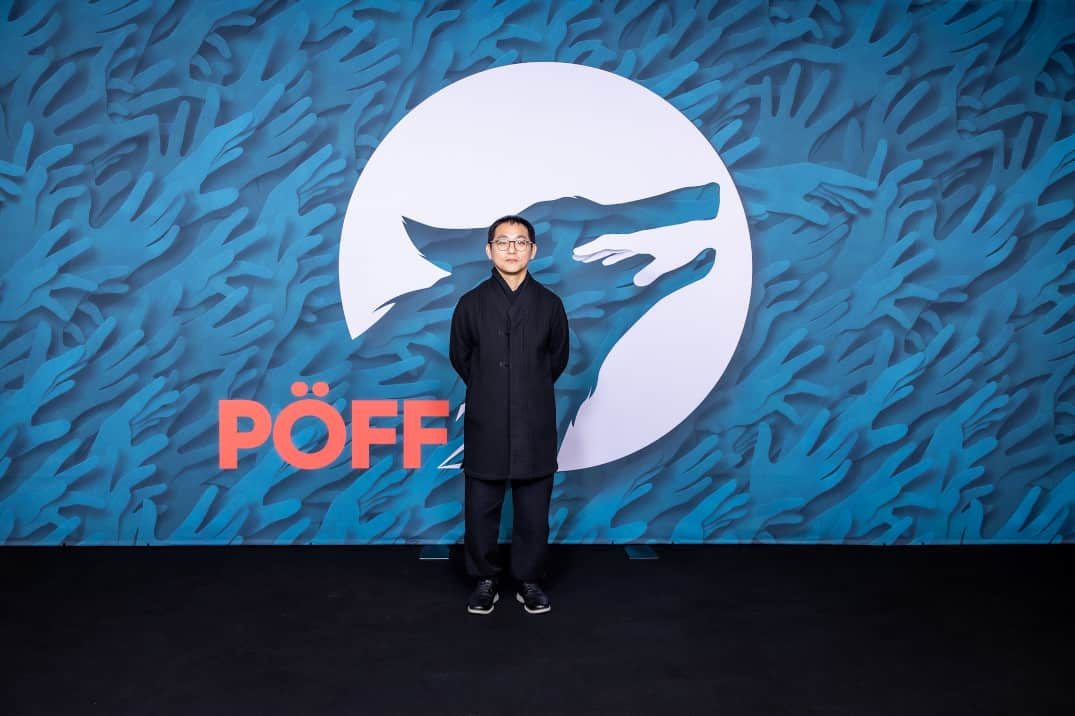Born in Medan, North Sumatra, Joko Anwar grew up watching kung fu movies and horror films and reading Bumilangit comic books. He went to the prestigious Bandung Institute of Technology to study Aerospace Engineering and after graduating in 1999, he became a journalist at The Jakarta Post and later a film critic. He then continued as a script writer, while his directorial debut came in 2005, with “Janji Joni”. His next two films “Kala” and “Forbidden Door”, received rave reviews from critics, and screened in festivals all over the world. In 2012, he shot “Ritual” and in 2015 “Copy of my Mind” His 2017 film, “Satan's Slaves” is became the highest grossing Indonesian horror film of all time, the highest grossing R-rated Indonesian film of all time.
Joko Anwar is this year in Udine with his two latest movies, the horror “Impetigore” and the superhero “Gundala”. On this occasion we “virtually” sat down with him for a chat about Impetigore, the incredibly clear vision of his films' universe, the eerie locations of Impetigore, the future of Gundala and more.
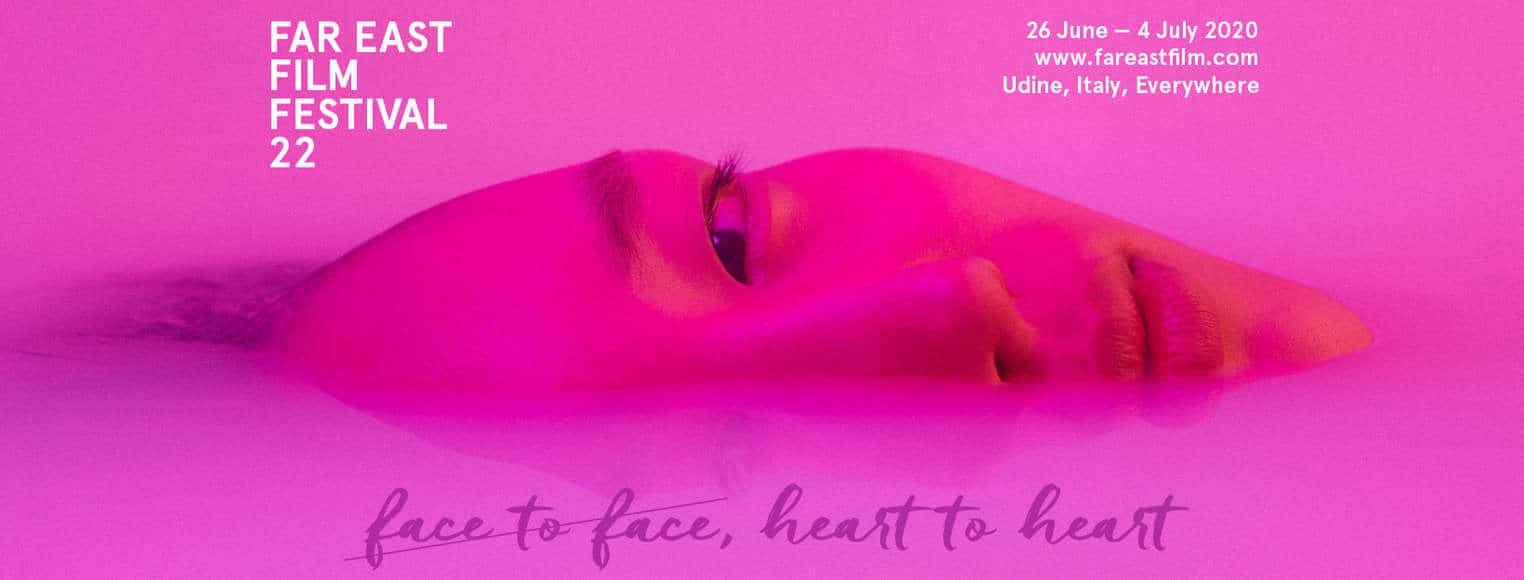
Festival programmer Paolo Bertolin and Enrico Fraioli of Fanacea participated in the interview.
Contrarily to “Satan's Slaves” (the reboot of a classic) and “Gundala” (an adaptation of a comic book) “Impetigore” is your original script. It's a great story, can you tell us about the inspiration behind creating the script?
In Indonesia, we are very familiar with shadow puppets (wayang), many people play shadow puppets or watch them on television.When I was a kid, maybe I was 7, my brother told me that shadow puppets, instead of being made of cow skin, were made of human skin, and I was terrified, I was very scared. Even though few years later I found out that it wasn't true, I still had nightmares about shadow puppets. However, that wasn't the real inspiration for the story of “Impetigore”, just something that sparked. Usually, the script for my films comes from social commentary that I have about whatever is happening in society at that moment.
Also, in 2010, I was commissioned to do the trailer for Udine Far East Film Festival and I made two, one was called “Everything Goes Around” shot during a night carnival, and the other was about a puppet-master who suddenly kills all the people beside him and earlier, chatting with Sabrina (Baracetti) and Paolo (Bertolin) I realized that it was the beginning of the idea for “Impetigore”. So, in a way, it all started from Udine! (He laughs)
The story of the human skin shadow puppet is fascinating, it must be terrifying for a child!
I made one with human skin, do you want it? (He laughs)
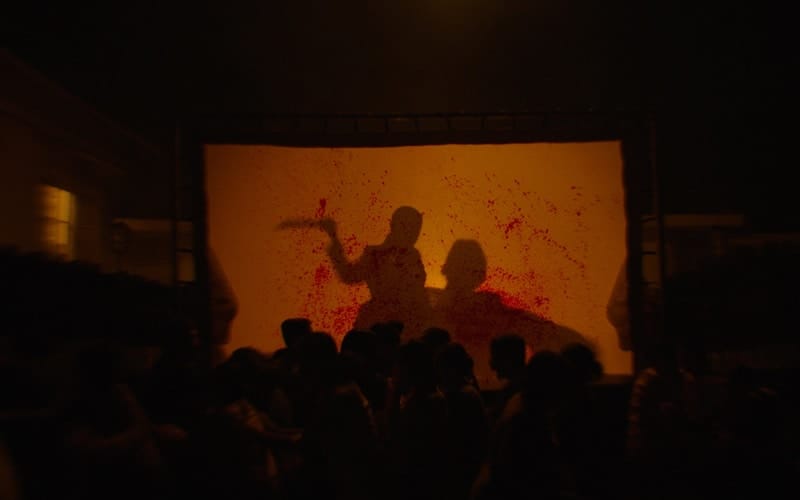
Watching at your whole body of work, it seems that you really like the horror genre. Can you point out directors or movies that have influenced or inspired your work? Maybe some American horror directors?
Horror films are my favourite genre, although I make films of many other genres. I had many influences, the strongest should be the movies called “Don't Look Now” (1973) by director Nicolas Roeg and “The Changeling” (1980) by Peter Medak and of course, “Rosemary's Baby” (1968) by Ira Levin. Those are my influences in my horror films.
One very strong moment in “Impetigore” is when the protagonist meets the three girls and she has a vision of the father. All the camera movements reminded me of the American movie series of Evil Dead. It looks like you have a big culture of the genre and it transpires that you really enjoy making horrors.
I do, I love making horror movies. Actually, the vision scenes are actually inspired by the visions in “The Changeling”. You are very right, they are not flashbacks but visions, it's the ghost telling the girl what really happened, but we don't really know if the ghost is telling the truth or not, it is definitely not a flashback.
I like the fact that you don't use jump scares, only some in the first half but then the film becomes more and more violent and gore.
If you notice, the jump scares at the beginning of “Impetigore” are a mockery to traditional jump scares, we use music that is funny, and it is a way to warn the audience that this is not that kind of jump scare film.
Yes, they are quite funny! For me one scary aspect of “Impetigore” is also the location, that secluded village is very disturbing. As we were talking about references, that reminded me a bit of Shyamalan's “The Village”. You often have some amazing locations and houses in your films, even in “Satan's Slaves”.
Yes, it is very interesting. We shot on location in East Java, in 5 different region, so we moved from one to another. Sometimes we created the interior in one region and then we moved to another one just to shoot the exterior. We did it to create the perfect world for the film, because before shooting, I made a sketch of exactly what the village would look like. On the outer circle, we'd have the pine forest, then in an inner circle we would have bamboo, than another circle of heterogeneous forest and then finally the village, so we used 5 different regencies to achieve that. But the village itself, the one where you see the house of the old lady, is actually a real secluded village, we searched for such a place for almost three months and then we found one. Surrounded by a very thick forest, that village was built by the Dutch during their occupation age in Indonesia in the early 1900 for a Dutch plantation company, and then abandoned because the plantation was no longer in use. But people still live in that village, although is completely isolated, so when we shot there, we had to build a road for our cars and equipment, we also had to build toilets for cast and crew. The village is secluded but the very interesting thing is that Indonesia has became more and more narrow-minded – partly because of the Islamic movement – and intolerant towards minorities including LGBT. There, however, because it was cutoff from modern life, the villagers are very tolerant, some of them are Muslims but we also found lesbian couples and gay couples, all living there with no problems.
Wow, what an interesting story!
Yes, when we shot there, we decided to stay for more than a week as the nearest town was at three-hour distance and the villagers were very welcoming. They let us stay in their houses and they cooked for us everyday. Such a wonderful village, wonderful people, and very tolerant, amazing! When we finish shooting, the house that we built as the old lady's house, was turned into a library; we filled it with books and it became the village Library. They called it the “Jungle Library”. The big colonial house scenes were shot in yet another region.
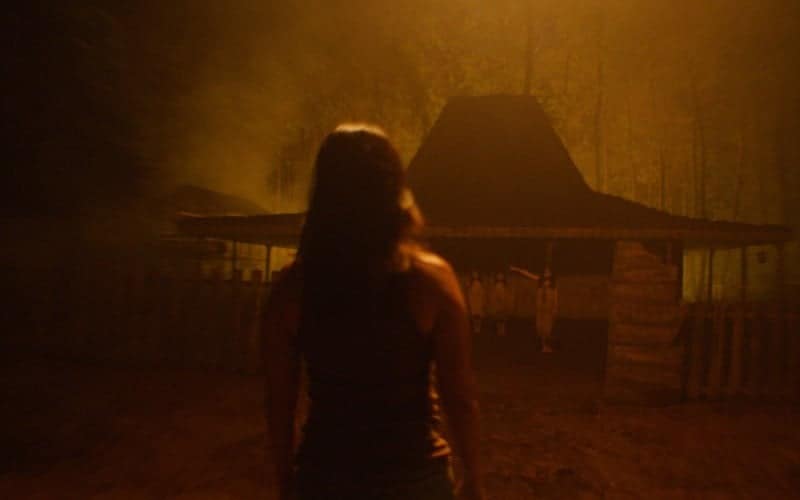
You have released these two films (“Impetigore” and “Gundala”) very closely to each other and you have a core group of regular collaborators. Can you tell us about working with this group, like your editor, the cinematographer and also the cast, many of them are recurring.
About cast, even though some of my films like “Impetigore” and “Gundala” that are both here in Udine, share some of the actors, all of them went through a regular audition process. For example, Tara was in 6 of my films but she still went through audition. There were 7 strong candidates for “Impetigore”, but the best, according also to the producers, was Tara Basro again. About the crew, I love working with crew that has worked with me previously because it makes it easier communicating with them. For instance, my DOP, Ical Tanjul,has been working with me in 4 films and now, when we communicate, we don't use words, just glances. If there is something wrong, I just look in his eyes and he'll fix it. So, it's very easy to communicate with a crew that has been working often with you.
The editor too, Dinda Amanda, has edited 2 of my features and she knows exactly what I like and what I want. Some directors like to shoot many scenes and then decide while editing which shot is more suitable, but for me, as we don't have the luxury to have many shooting days and a big budget, everything has to be very efficient and I only shoot what I need. I do a shot-list and we only shoot what is on that list, so I give the editor limited shots and she knows how to make them very powerful, even with limited material.
As we are talking about cast, I wanted to ask you about children. You often work with children and you seem very good at casting them, they often very good actors.
Yes, yes, all my movies have children, I always employ child actors because child characters can really add realism, that is why when I can I always put children in my works and I usually use children that are not actors.
And how do you make them work so well? On the set are you like Hitchcock-type director who made them cry or are you a gentle one?
(He laughs) No, no, I am a very gentle director. I always do the casting myself; we have a casting director, but I participate because I want to know the chemistry between me and them, so it's not just about someone who can really act, you have to have chemistry with your actors. My method is that during the casting, I don't ask them to read the script, what I usually do is I give them a piece of paper which tells them about the character and then I give them a situation and interview them. For example, when I did the casting with Tara Basro for “Impetigore”, I gave them the character on the paper and then I gave her a situation; it was when she was still selling clothes in the market, and I was playing the owner of the stall where she was selling the clothes and she hadn't paid her rent for two months. I would ask her about the payment for the stall; I wanted to know if she really knew the character I gave her or not. So, this is my method when I cast, including child actors and non actors. Also, before we shoot, I give everybody their character sheet. Even if someone has only one dialogue I give him/her a complete history of the character from the day they were born until the exact time in the film. We read the script only once or twice before shooting, but they know their character so it's easy for them to act in the situations they are in, and often, after the end of the scene, I don't say “cut' and I leave them going on as they know the characters and know how to interact, If I like it I even put that in the movie as it gives more realism to the story.
Also, for this reason, during shooting, I never raise my voice with my actors and crew, this is my policy, everybody on set need to respect each other and never raise their voice. Even the sound guy when he say “quiet please” he never shouts. I want people to work with a happy feeling in a nice environment.
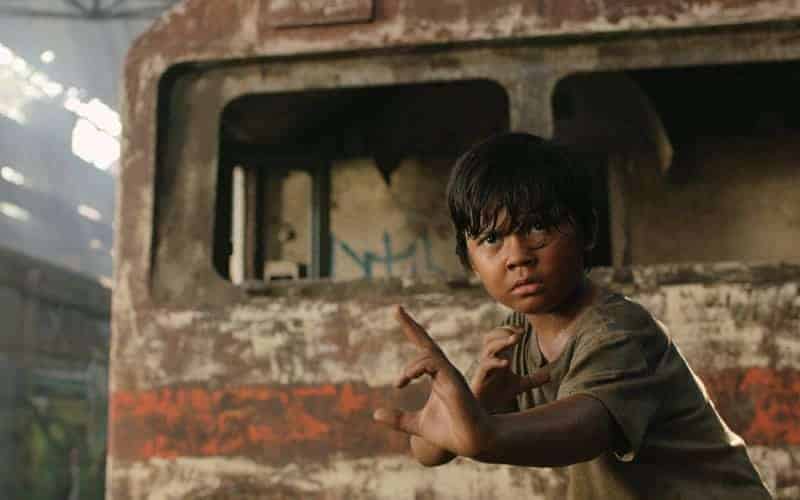
This makes me wonder how much there is in your films of script and improvisation, because even in the strictly genre films there is always a note of irony. Is it something you always inject in your script or something that also comes out of this interaction between actors?
It is very different from one movie to another. Usually in horror films, many scenes are strict to the script because timing is very important and too much improvisation is not going to work, but I love surprising my actors. Like in “Impetigore” there is a scene where Ario Bayu, the puppet-master, slaps the villager. That wasn't scripted, before shooting I asked the actor if it was OK if we did something outside the script and he said yes, but he didn't know Ario Bayu was going to slap him, so the reaction of the slapping is very real. Or sometimes I ask an actor to change his/her line and so the opposite actor has to improvise. I did it in “A Copy of My Mind”, I actually destroyed the script after the actors read it so they had to improvise under my instructions and the result was very organic. But that was a very loose movie that didn't require strict shot-list like a horror or an action.
“Impetigore” had its international debut at Sundance Film Festival, a quite rare feat, since Asian films are scarcely represented there. Are you proud of this success, did it change something for you?
I think that if a movie that you make locally, for your local audience, gets some acknowledgment from people outside your own country and they can appreciate it, then I think it's good, wherever and whatever is the festival or the event. “Impetigore” is very Javanese, about an ethnic group with very strict moral rules, children cannot ask their fathers, people must respect the elders, that is why the puppet-master is the head of the village and the villagers are not even able to look him in the eyes, because it's not allowed and it's not polite. So if you make a movie for local people and that only local audience would understand but then it can travel, I think you have done a nice job. It's a great feeling, regardless the festival, I think it's just good.
How is the Indonesia movie Industry doing, both locally and on the international landscape?
Locally in Indonesia, before COVID19, we were in our “Golden Age” of cinema. In terms of business, we sold 51M tickets for Indonesian movies alone in 2018 and 2019, compared to 2017 when we only sold 37M tickets for Indonesian films. So in terms of business, it's very good but it also indicates that local audience have more faith now in local movies, that they watch local movies more and more. In the 1990s, nobody watched Indonesian movies, but at the beginning of 2000, we entered this phase called 37:45 New Indonesian Cinema. We have raised but we had ups and down because lots of people without skills flooded the cinema with their movies and people's trust started to decline again. But it looks like that locally, in the past 5 years, it has been very good for business and for trust in local products. In terms of international recognition, I think Indonesian Cinema has been more and more recognized in both festival and commercial circuits. I think we have got potentials; the problem is that we don't have enough human resources to make movies because we only have limited film schools. There are 250M people in Indonesia and we don't have a proper film school, we only have university departments to learn movies, 4 in Jakarta and 2 outside. Not enough for 250M. With more education and places to learn, we would have more international success.
And how this improvement of the general situation has affected your own career and growth? Do you have more freedom and resources now, after the big success of “Satan's Slaves”?
I think I have been very lucky from the very beginning, because I was able to make all the movies I wanted, and I only make films I want to make. Financially, I was lucky too as there were always people who wanted to invest in my films. I treat investors the same way I treat actors and crew members; if someone says: “I want to invest in your film” I would like to sit with them and talk about their vision. I don't want to take money from people who just want to make money; they have to have vision and the intention to make the industry better. And of course, the chemistry has to happen. So, I am very lucky, I now have a representative in LA and probably something international is going to happen next year.
I remember watching the documentary “Garuda Power” about the history of Indonesian action cinema, in Udine few years ago, and the situation sounded quite bleak. I am glad that things are much better now and “Gundala” is becoming a whole Cinematic Universe. What is going to be your role in this enterprise? And is the comic book “Gundala” is based on, still popular with the younger generation or is it something that you are trying to reboot?
Yes, the Cinematic Universe that started with “Gundala” is called Bumilangit (BCU), our trademark; in Indonesian, it means earth and heaven. Buminagit Enterprise is also a company that owns more that 1100 characters of comic books in Indonesia, published between 1950 and now, but the original comic books were very big during the 70s and 80s so many younger generations are not familiar with Gundala or other characters from Bumilangit and part of my intention to turn them into films was to introduce these characters to younger generations. I grew up with them, Gundala is my favourite. Reading these comic books really make your imagination going and they often reflect the social and political life of the era in which they are written, so if younger generations read these books, they might get more in contact with their country, which I think is good. Of course, we have to adjust them to modern society first, and like “Gundala” there will be many other superhero movies. Until 2026, we are planning of releasing 8 films including “Gundala”, so 7 more. I am part of the board of directors and I am the architect of the story arc for the whole Universe, from “Gundala” until forever. These stories were created by many authors so now they have to be streamlined into one story arc, and that is my main role in the company. I am also going to be one of the producers in all the films, I am going to write some of them, including the second film of the universe that is called Sri Asih. Yes, it was the very first Indonesian superhero and it's a woman!



